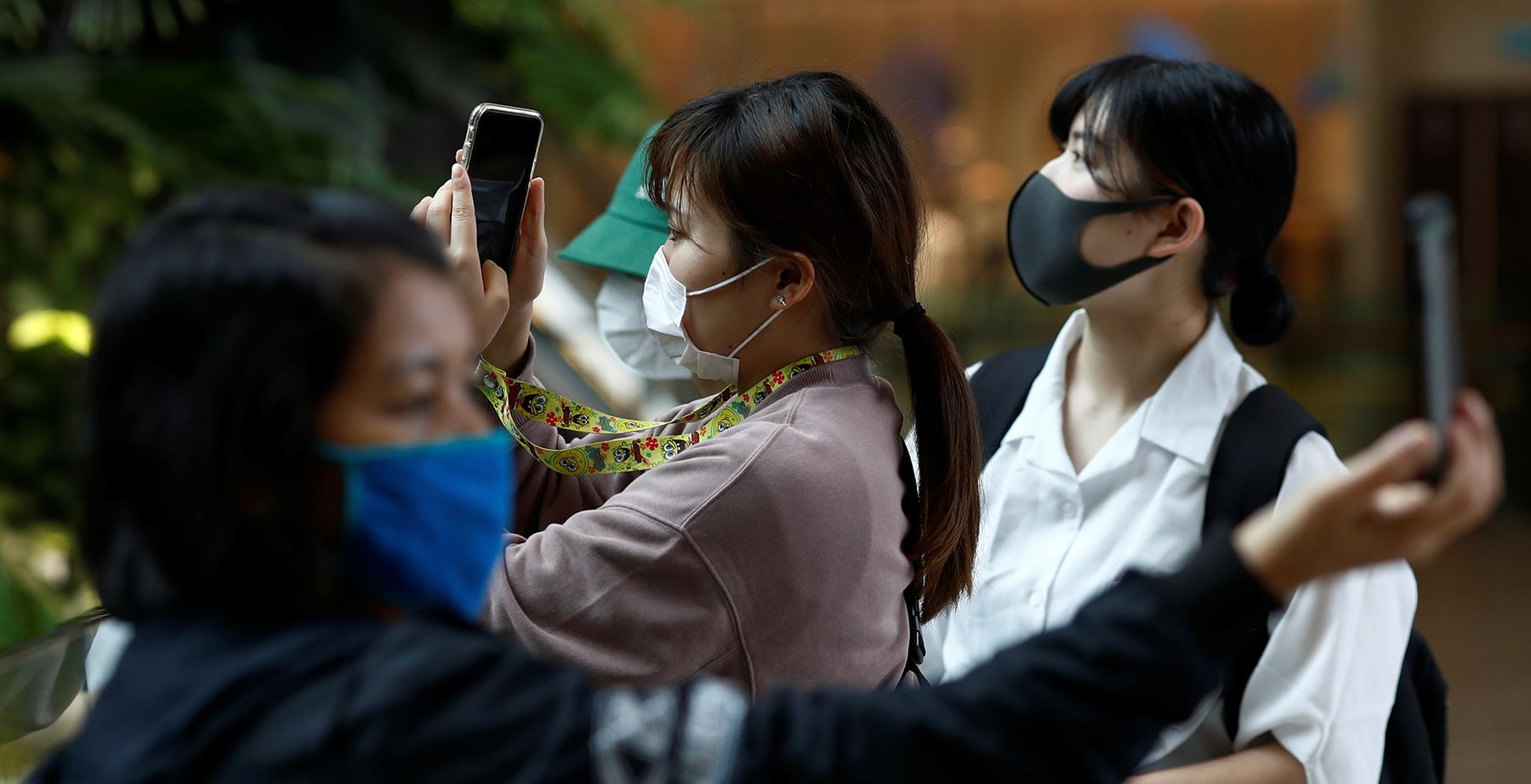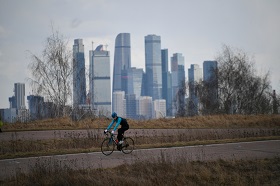They say that freedom is better than no freedom. Human nature stubbornly resists external constraints, no matter where they come from and how they may be justified. Yet in times of war, natural disasters and epidemics, weak and vulnerable individuals turn to the state for protection and support. Still, even in times such as these, most of us are extremely uncomfortable with the excessive encroachments of the state upon our personal freedom. Freedom in the broadest sense of the word – freedom of speech, freedom of the press, the freedom to organize a street demonstration, freedom of faith or simply the freedom to relax and chat with your friends in your favourite trattoria on Piazza Navona in Rome.
This is a universal human trait, whether you come from China, the United States, Russia or Europe. While it is true that people in liberal democracies place greater value on personal freedom than those who live in authoritarian societies, the fact of the matter is that we all demonstrate a reluctance to follow the rules imposes upon us. In good times and in bad, we instinctively reject attempts from above or from the outside to exert excessive control over our private lives. This is only natural and, I would thus argue, justified.
Even now, at a time when the deadly coronavirus is taking lives left, right and centre, no calls, admonishments or threats can suppress our inherent desire to be free and to make our own, independent decisions. For we are not slaves! But reality dictates our laws. The virus is causing our personal freedoms to be gradually stripped away. And this is happening in democratic countries as well as those with authoritarian regimes.
Let’s be honest with each other for a second – we are far less free today than we were a month ago. And I have a sinking feeling that our freedoms will be restricted even further in the coming weeks and months. In fact, I am becoming increasingly convinced of this.
It is clear that in emergency situations – and I think the current pandemic counts as an emergency situation – the social contract between government and individual has to be rewritten. Or at least edited heavily. The government has a right to expect demonstrations of civic responsibility, solidarity and self-discipline from its citizens. That means no barbecues in city parks, no panic buying in pharmacies and shopping centres, no drinking benders at home, or indeed any other excesses that senseless and unrelenting freedom may otherwise permit. It is only natural – and therefore justified to the same extent that the individual strives to maintain as much of his or her personal freedom as possible – that governments should expect such behaviour.
However, not only are we by our very nature rather fond of freedom, but we are also inherently distrustful and suspicious. We invariably believe that the government is determined to squeeze more out of us than it is prepared to give in return. And it is not even as if we can say these suspicions are completely unfounded! The question is: How can we get someone to accept, however reluctantly, the unfamiliar and even burdensome situation of limitations being placed on their freedom? Now would be a good time for us to formulate some principles of the “responsible restriction of freedom” that the authorities of all countries should think about when such restrictions are inevitable. I believe that these principles can be used to form the basis of a new social contract for as long as the coronavirus persists.
They say that freedom is better than no freedom. Human nature stubbornly resists external constraints, no matter where they come from and how they may be justified. Yet in times of war, natural disasters and epidemics, weak and vulnerable individuals turn to the state for protection and support. Still, even in times such as these, most of us are extremely uncomfortable with the excessive encroachments of the state upon our personal freedom. Freedom in the broadest sense of the word – freedom of speech, freedom of the press, the freedom to organize a street demonstration, freedom of faith or simply the freedom to relax and chat with your friends in your favourite trattoria on Piazza Navona in Rome.
This is a universal human trait, whether you come from China, the United States, Russia or Europe. While it is true that people in liberal democracies place greater value on personal freedom than those who live in authoritarian societies, the fact of the matter is that we all demonstrate a reluctance to follow the rules imposes upon us. In good times and in bad, we instinctively reject attempts from above or from the outside to exert excessive control over our private lives. This is only natural and, I would thus argue, justified.
Even now, at a time when the deadly coronavirus is taking lives left, right and centre, no calls, admonishments or threats can suppress our inherent desire to be free and to make our own, independent decisions. For we are not slaves! But reality dictates our laws. The virus is causing our personal freedoms to be gradually stripped away. And this is happening in democratic countries as well as those with authoritarian regimes.
Let’s be honest with each other for a second – we are far less free today than we were a month ago. And I have a sinking feeling that our freedoms will be restricted even further in the coming weeks and months. In fact, I am becoming increasingly convinced of this.
It is clear that in emergency situations – and I think the current pandemic counts as an emergency situation – the social contract between government and individual has to be rewritten. Or at least edited heavily. The government has a right to expect demonstrations of civic responsibility, solidarity and self-discipline from its citizens. That means no barbecues in city parks, no panic buying in pharmacies and shopping centres, no drinking benders at home, or indeed any other excesses that senseless and unrelenting freedom may otherwise permit. It is only natural – and therefore justified to the same extent that the individual strives to maintain as much of his or her personal freedom as possible – that governments should expect such behaviour.
However, not only are we by our very nature rather fond of freedom, but we are also inherently distrustful and suspicious. We invariably believe that the government is determined to squeeze more out of us than it is prepared to give in return. And it is not even as if we can say these suspicions are completely unfounded! The question is: How can we get someone to accept, however reluctantly, the unfamiliar and even burdensome situation of limitations being placed on their freedom? Now would be a good time for us to formulate some principles of the “responsible restriction of freedom” that the authorities of all countries should think about when such restrictions are inevitable. I believe that these principles can be used to form the basis of a new social contract for as long as the coronavirus persists.
First, people like life to proceed according to a certain set of rules. Accordingly, as restrictions on personal freedom should be imposed in accordance with established legislative procedures. A pandemic is certainly not a basis, much less a reason, for abandoning the rule of law or procedures that are carried out in accordance with the law, even if for a short time only. If an Italian mayor, Russian governor or the President of the United States himself puts expediency above the law and, “for the good of the cause,” decides to go beyond the legal framework, then society should retain the right and responsibility to hold them accountable. Even if we are in the midst of an epidemiological crisis.
Second, people like things to be understandable. Even minor restrictions on personal freedom must be as transparent, clearly defined and unambiguous as possible. Any uncertainty or ambiguity inevitably creates fertile ground for subjective interpretations, abuses and, of course, end up being a source of corruption. No one who is responsible for enforcing the law should have a broad “grey area” for the arbitrary interpretation of the rules.
Third, people like to see justice in this world. In order for society to see the restrictions as being fair, they need to be free of loopholes and double standards. There should be no “exceptions” in the self-isolation regime for politicians, oligarchs and celebrities or their families and friends! Special passes and permits will inevitably be issued, but the reasons for such a decision must be clearly stated. There should be absolutely no discrimination towards any population group. There is nothing more infuriating than an endless cavalcade of limousines roaring past you with their special sirens blaring out any their blatant disregard for the traffic rules. The coronavirus does not discriminate, so any restrictions on personal freedom should apply equally to everyone.
Fourth, people in desperate situations need a carrot as well as a stick. It is important that restrictions of all shapes and sizes and the prospect of heavy fines for ignoring these restrictions are not the only, or even the main way of ensuring that society abides by the rules. Restrictions on personal freedom in one area should be met with increased freedom in another. You want to impose restrictions on our freedom of movement? Fine! But would you be so kind as to give us all access to the internet, remove administrative barriers and bureaucratic sticking points that complicate doing business from home, and make it easier for people to study, work and socialize from home in return?
Fifth, a date on which the restrictions end needs to be set at the very beginning, even if the changing situation with the pandemic forces this date to be moved. After all, not only are we by our very nature rather fond of freedom and inherently suspicious, but we are also vindictive, as experience has taught us that those who borrow a part of our personal freedom are often in no hurry to give it back.






